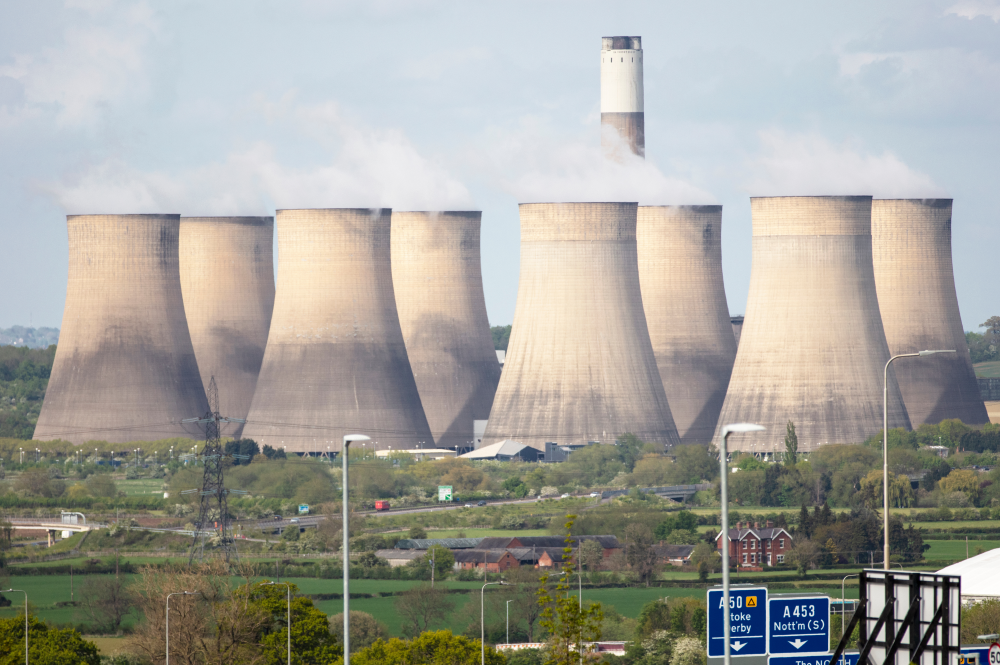UK’s Final Coal-fired Power Plant Shuts Forever, Marking Historic 142 Year Run

On Monday, 30th September 2024, the last operational coal power plant, Ratcliffe-on-Soar in Nottinghamshire, closed forever, marking a historic change for the country and climate. Having operated since 1967, its decommissioning and forthcoming demolition signify the end of an era for the UK, the first country to pioneer coal power and now the first major economy to give it up.
Coal As Power
The first coal-fired power station opened in 1882, by the world-renowned Thomas Edison, producing power for electricity and lighting, and later powering railways and playing an essential role in the Industrial Revolution. Sometimes providing 90% of the UK’s electricity,1 coal was the main source of energy for decades, with over 170 coal power plants operational in the UK at one time.
However, in 1956 the Clean Air Act set limits on the amount of CO2 that new furnaces could emit, and in 2015 the UK promised to end coal power within a decade. Followed by coal-free days starting in 2017, when coal plants could be shut off for days at a time as they were not needed, it was evident that coal was on the way out.
The first coal power plant closed in 2012, Grain in Kent, with many following suit throughout the next decade, with those in Newport and Northumberland changing to Biomass plants.
Why the Decline in Coal?
Pollution
The impact of coal power plants on the environment is staggering; Ratcliffe-on-Soar alone has produced over 10.4 billion tonnes of carbon dioxide (CO2), more than some countries have ever produced from all energy sources combined.
Negative effects of coal power include acid rain as well the contamination of soil and water with mercury, but to name a few. Additionally, fog issues in the 1950s along with more awareness on the effects that coal posed to health, led to people no longer believe in the power of coal and instead search for cleaner alternatives.
Renewables
Coal is notoriously the worst fossil fuel in terms of pollution and its implications on the climate, so its days were numbered. With the growth of natural gas-powered plants, and renewable energy becoming cheaper, it was inevitable that coal would be phased out. Renewable energy demand has increased over the last few years, with renewables estimated to account for 41.6% of global electricity by 2028.2
2050 Net-Zero Goal
The UK Government set a goal for net-zero greenhouse gas emissions by 2050, committing to reducing greenhouse gases in the atmosphere by 100% by this time. This was put into place to limit global warming and help to tackle climate change. This goal was fundamental in the closure of coal-fired power plants, taking the country one step closer to reaching the net-zero goal.
EU Pollution Controls
Back when the UK was still in the European Union, officials announced new rules focusing on acid rain reduction, which then led to an increased cost of running and managing coal plants.
Issues
Coal, however, has one benefit that its renewable counterparts, such as wind and solar, do not – it is always available. Renewable energy is often limited to weather conditions, meaning more innovation is needed to ensure that we can manage supply and demand.
This is where battery energy storage technology comes in. Creating batteries that store surplus energy generated from renewable sources is key; coordinating energy production, storing this energy and releasing it when needed. Mastering this process ensures that electricity is continually flowing even in peak demand, in addition to helping to reduce costs.
Outlook
The UK was the first country in the world to have a coal power plant, so it is significant that the country is no longer using coal. The country joins the likes of Iceland, Sweden, Portugal and Switzerland to have phased out coal power generation, showing that it is possible to transition away from coal power whilst maintaining reliable electricity production.
It is hoped that other countries may follow the UK’s lead, inspired by our journey to decarbonisation. However, the UK has access to cheap natural gas, which other countries may not, putting economic pressure on the use of coal. This is a hurdle that countries are taking into consideration, to help plan for their future.
2 IEA


